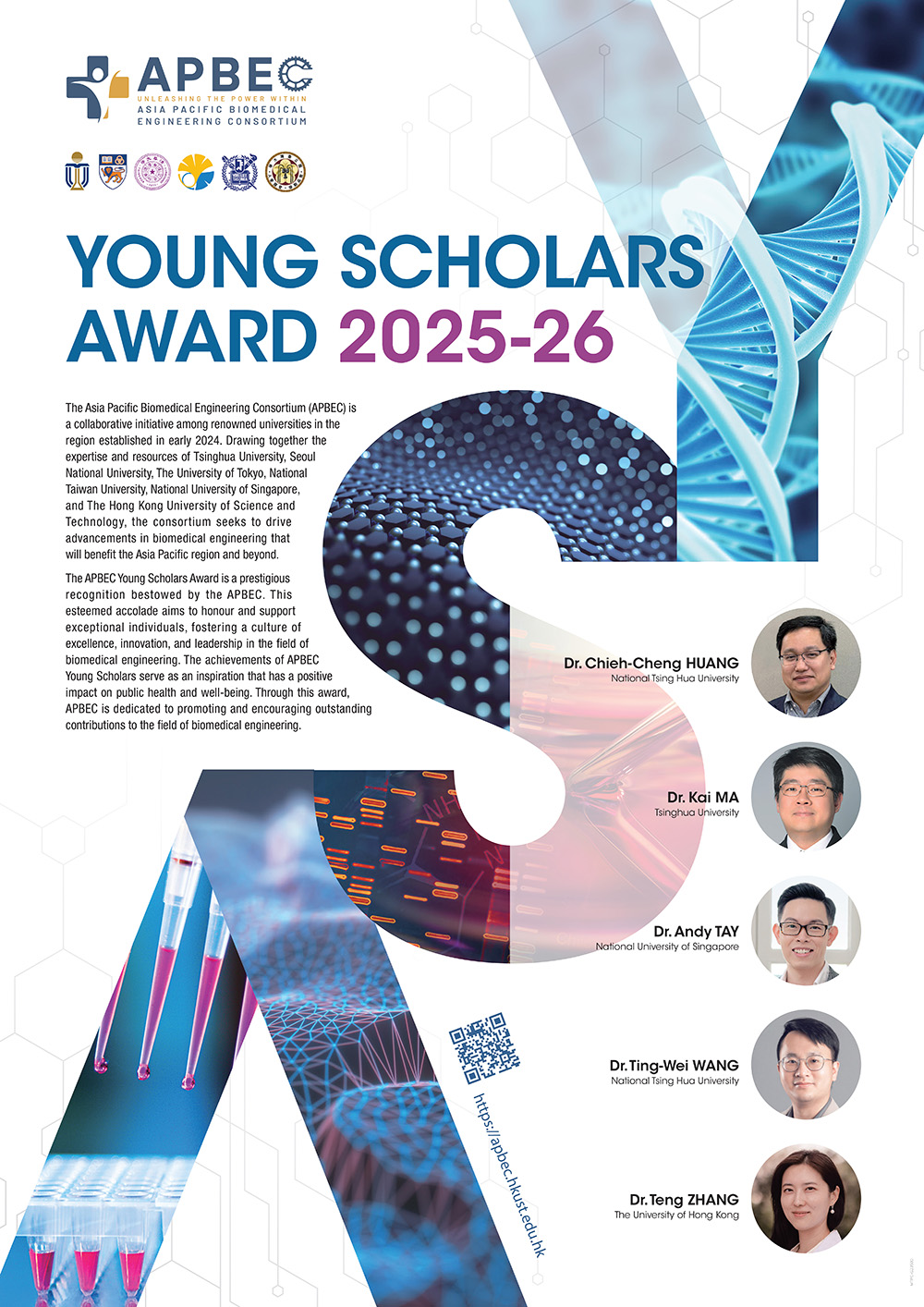APBEC Young Scholars
2025-2026 Awardees
Following a rigorous selection process by the Local Selection Committee and the APBEC Selection Committee, we are proud to announce the recipients of the 2025-2026 APBEC Young Scholars Award. These outstanding individuals have demonstrated exceptional academic achievements and a strong potential to shape the future of biomedical engineering as leaders in the field.
As part of this recognition, the awardees will be invited to deliver a talk at the upcoming APBEC 2025 Symposium, to be held on August 10–11, 2025, at Tsinghua University, Beijing. This platform will provide an opportunity for them to share their innovative research and inspire the next generation of scholars in biomedical engineering.
We extend our heartfelt congratulations to the awardees and look forward to their continued contributions to pushing the boundaries of biomedical engineering.
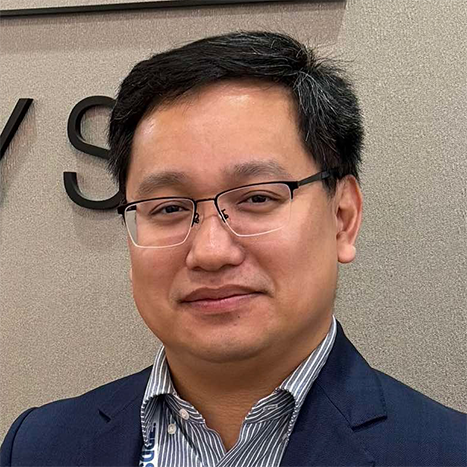
National Tsing Hua University
Dr. Chieh-Cheng HUANG received his bachelor’s degree in Life Science from National Tsing Hua University (NTHU) in 2008. He then pursued his doctoral studies in the Department of Chemical Engineering at NTHU, earning his Ph.D. in August 2015. In February 2017, he joined the Institute of Biomedical Engineering at NTHU as an assistant professor and was promoted to associate professor in August 2021. His group focuses on developing bioengineering strategies centered on stem cell spheroid-based therapies and stem cell-derived biomaterials to promote tissue regeneration, with a particular emphasis on repairing injuries to the central and peripheral nervous systems.
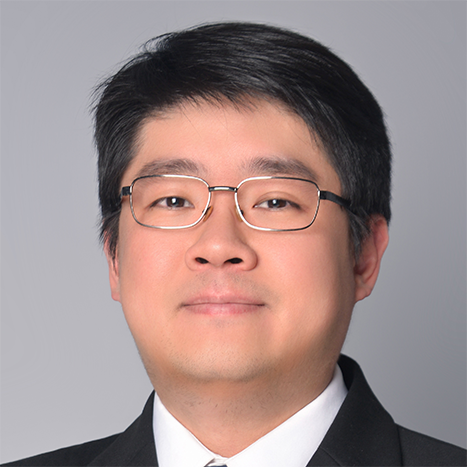
Tsinghua University
Dr. Kai MA obtained his BS in Physics from the University of Science and Technology of China, and his PhD in Materials Science and Engineering from Cornell University. His research is focused on innovative biomaterials at the interface between biotechnology and materials chemistry. He has translated multiple silica-based nanomedicine products into clinical advancements. He is also a co-founder of two biotech companies focused on the development of novel drug delivery systems for a variety of diseases, which have in total raised over 100 millions US dollars. He has published over 30 papers in prestigious journals including Nature, and is an inventor of more than 30 granted patents.
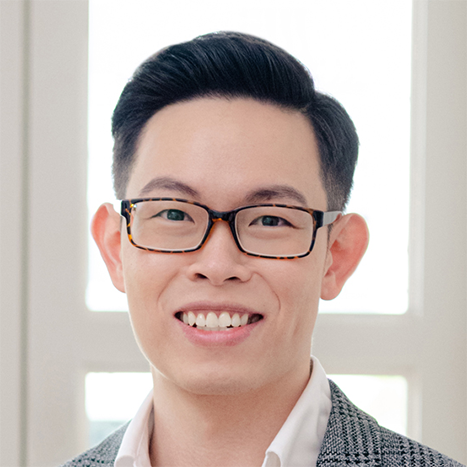
National University of Singapore
Dr. Andy TAY graduated in 2014 from NUS with a First-Class Honors in Biomedical Engineering. He later headed to the University of California, Los Angeles for his PhD studies and graduated in 2017 as the recipient of the Harry M Showman Commencement Award. Andy next received his postdoctoral training at Stanford University before heading to Imperial College London as an 1851 Royal Commission Brunel Research Fellow. He is currently a Presidential Young Professor in NUS.
Andy is a recipient of international awards including the Christopher Hewitt Outstanding Young Investigator Award, Terasaki Young Innovator Award and Micro and Nano Engineering Young Investigator Award. He is listed as a Forbes 30 Under 30 (US/Canada, Science), World Economic Forum Young Scientist and Top 2% Scientist in the World by Stanford University.
- 2025: Young Scientist Award 2025, National Research Foundation, Prime Minister’s Office, Singapore
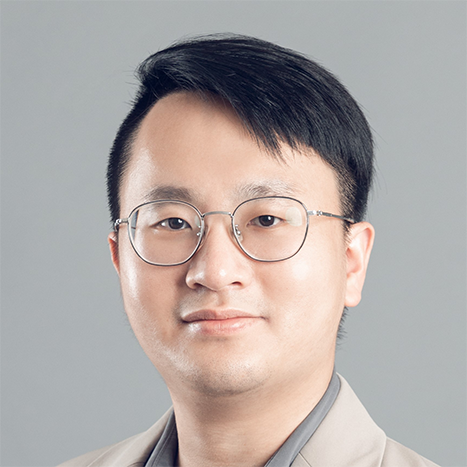
National Tsing Hua University
Dr. Ting-Wei WANG received his Ph.D. from the Department of Electronics and Electrical Engineering, National Chiao Tung University, in 2020. He was an R&D engineer at TSMC (2016–2019) and a postdoctoral researcher at NCTU, NTHU, and Caltech (2020–2022). Since August 2022, he has been an Assistant Professor with the Department of Biomedical Engineering and Environmental Sciences, National Tsing Hua University. His research focuses on innovative wearable electronic devices, particularly pioneering the development of biomedical eddy current sensors (BECS) during his PI tenure. Dr. Wang has published more than 12 first/corresponding-author articles in leading IEEE journals. He received two consecutive Healthy Longevity Catalyst Awards from the U.S. National Academy of Medicine in 2023 and 2024. In 2025, he was elevated to the grade of IEEE Senior Member, recognizing his significant contributions to engineering.
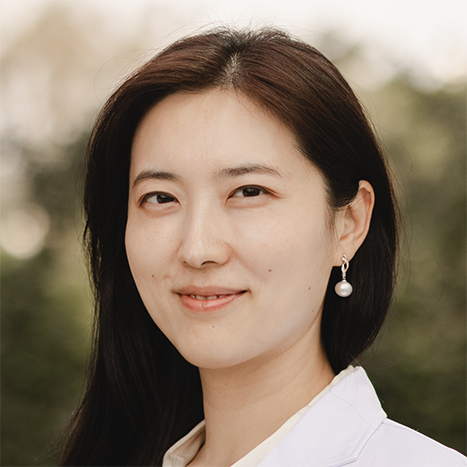
The University of Hong Kong
Dr. Teng Grace ZHANG is an Assistant Professor and Director of the Digital Health Laboratory at The University of Hong Kong (AIMed Lab). With a background in biomedical engineering and medicine, her research integrates biological system modeling with clinical applications such as digital health, auto-diagnosis, optimized treatment planning, and real-time feedback systems to improve outcomes.
Previously, Dr. Zhang served as a Scientific Officer at the St. George Hospital and the Clinical School of the University of New South Wales, Sydney and worked as a System Engineer at Kunovus Australia. She is a senior member of IEEE and EMBS and a member of AO and ISSLS, among others. Dr. Zhang has an h-index of 25, 1,854 citations, and earned numerous academic and industrial awards.
